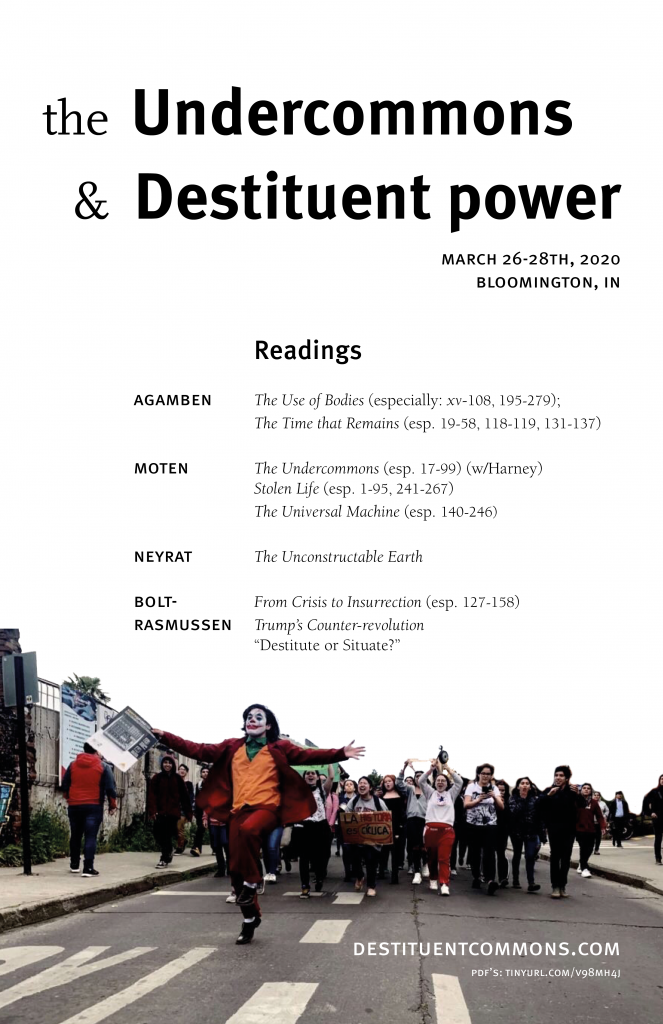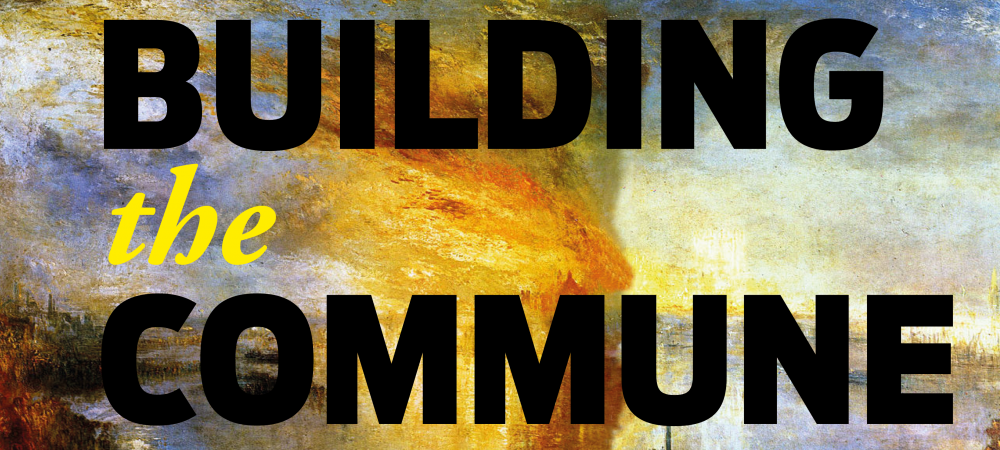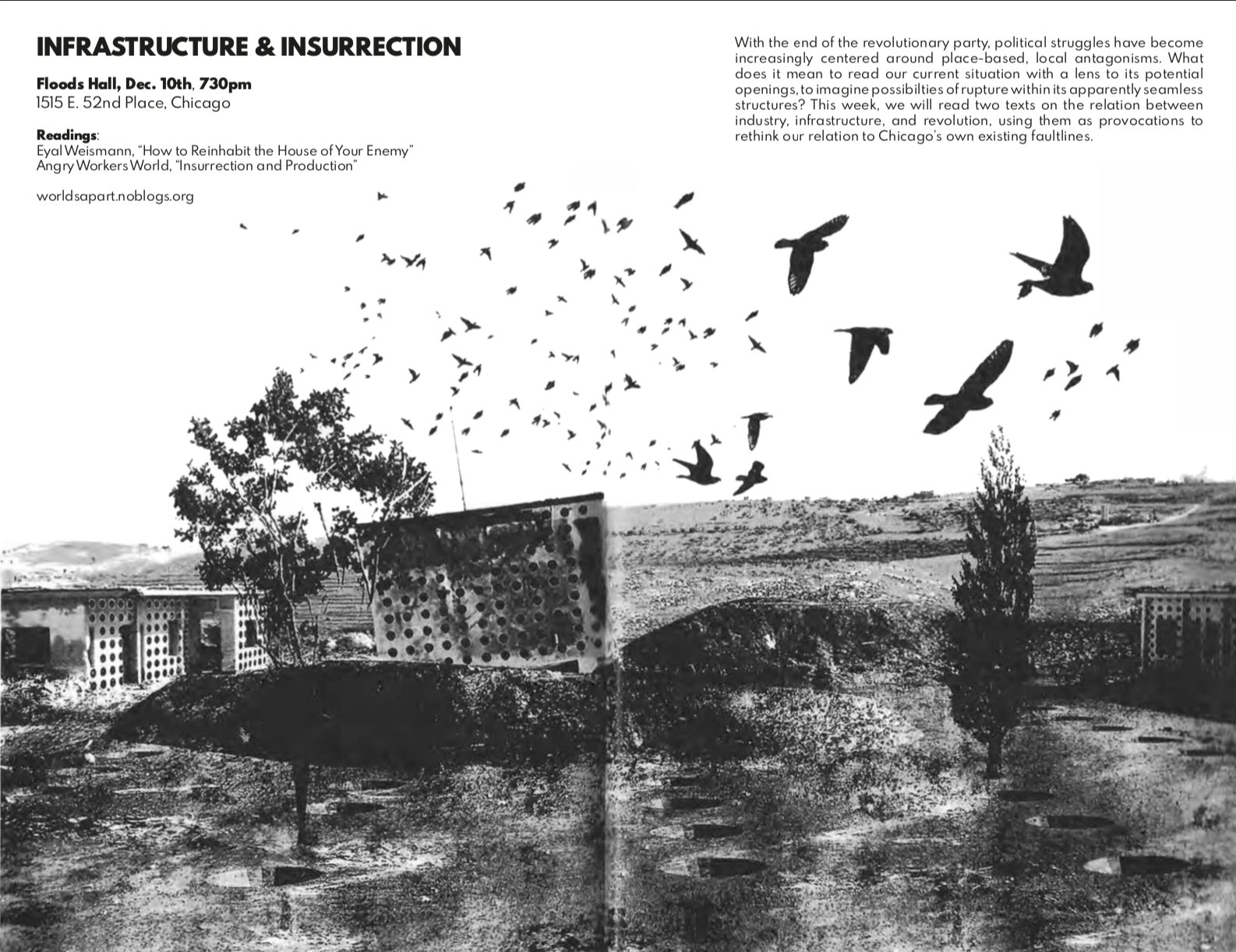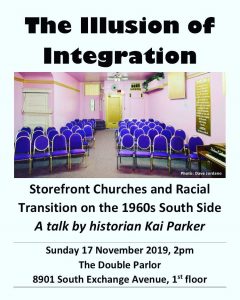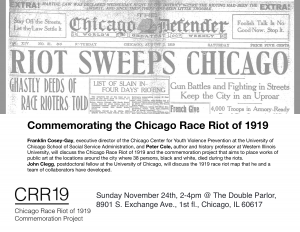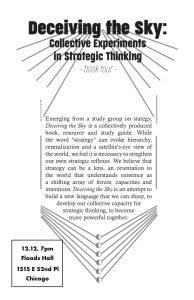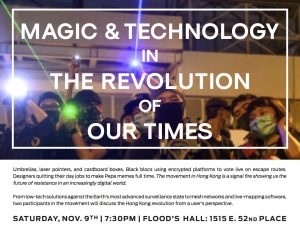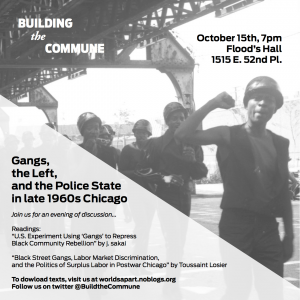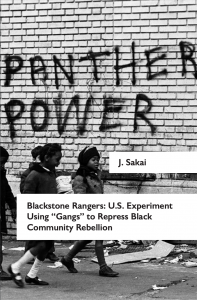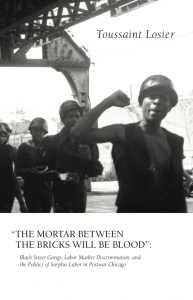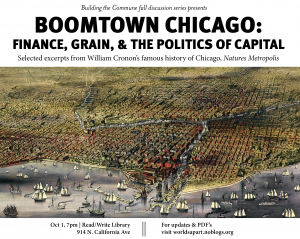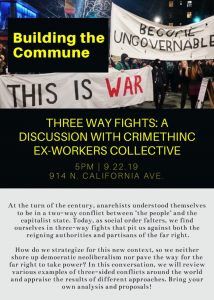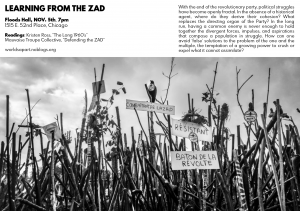
With the end of the revolutionary party, political struggles have become openly fractal. In the absence of a historical agent, where do they derive their cohesion? What replaces the directing organ of the Party? In the long run, having a common enemy is never enough to hold together the divergent forces, impulses, and aspirations that compose a population in struggle. How can one avoid ‘false’ solutions to the problem of the one and the multiple, the temptation of a growing power to crush or expel what it cannot assimilate?
Join us on Nov. 5th at 7pm for a discussion of two texts taking up the question of “composition” as a strategy for building movements. Although we will take the movement against the airport in Notre-dame-des-landes, France as our case study, our ultimate interest is in thinking about the potentials for struggle here in Chicago.
Assigned readings:
-Kristen Ross, “The Long 1960’s and the ‘Wind From the West'” READ | PRINT
-Mauvaise Troupe Collective, “Defending the ZAD” READ | PRINT
**
Further reading:
Kristin Ross and Mauvaise Troupe, The ZAD and No-TAV, “Preface”
Alessi del Umbria, “Being in the Zone. Concerning Conflicts Within the ZAD”
John Jordan, “For the Love of Winning. An Open Letter to Extinction Rebellion”
CMDO (Conseil Pour le Maintien des Occupations), “ZAD Will Survive”
